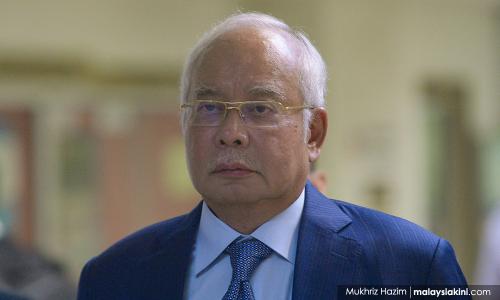Najib should explain cancellation of Jernih dam project
MP SPEAKS | In his visit to Malacca over the weekend, former prime minister Najib Abdul Razak reportedly spoke about the state’s water issue and attributed it to the Pakatan Harapan government.
Yes, Malacca is undergoing a water rationing exercise, but Najib has no standing to talk about the issue. This is because it was Najib and his cabinet who made the decision in 2017 to cancel the Empangan Jernih project, thus putting the people and industries in Malacca at risk of water shortage.
It is not my intention to blame the former government for the current water issue, but I think it is important to state the facts as it is for the people to understand the matter properly and holistically.
As far back as 2006, Syarikat Air Melaka Berhad (SAMB) and the state government highlighted that a new dam was needed for the state in order to fulfil the future water demand. This eventually led to the beginning of the Empangan Jernih project in 2012, but it was never completed under the former government.
In 2016, the former Malacca chief minister, Idris Haron, proclaimed that Empangan Jernih must be completed within two years to avoid a water crisis.
Yet, instead of taking the issue seriously, Najib and his government decided to cancel the project in 2017. This shows that the former federal and state governments have failed to plan for the long-term sustainability of water supply in Malacca.
When Pakatan Harapan took over the government in 2018, I immediately arranged for a meeting in Parliament between SAMB, the state government and the federal government to discuss about Empangan Jernih.
There was a positive outcome as all parties agreed to continue the Empangan Jernih project due to its urgency. The project is now ongoing and is expected to be completed in 2023.
Of course, the state government cannot sit and wait until the project is completed. Since 2019, several short- and medium-term steps have been taken to increase our water security. For example, we have increased the amount of water purchased form Johor, drew more water from lakes and ponds and carried out cloud seeding operations.
Unfortunately, the dry spell in 2018 and 2019 has amplified the problem. The average rainfall last year was the lowest in the past decade, thus reducing the inflow of water from existing sources. Nevertheless, the federal and state governments will continue to take more steps to resolve the water issue as soon as possible.
KHOO POAY TIONG is the Member of Parliament for Kota Melaka.
The views expressed here are those of the author/contributor and do not necessarily represent the views of Malaysiakini.
RM12.50 / month
- Unlimited access to award-winning journalism
- Comment and share your opinions on all our articles
- Gift interesting stories to your friends
- Tax deductable
